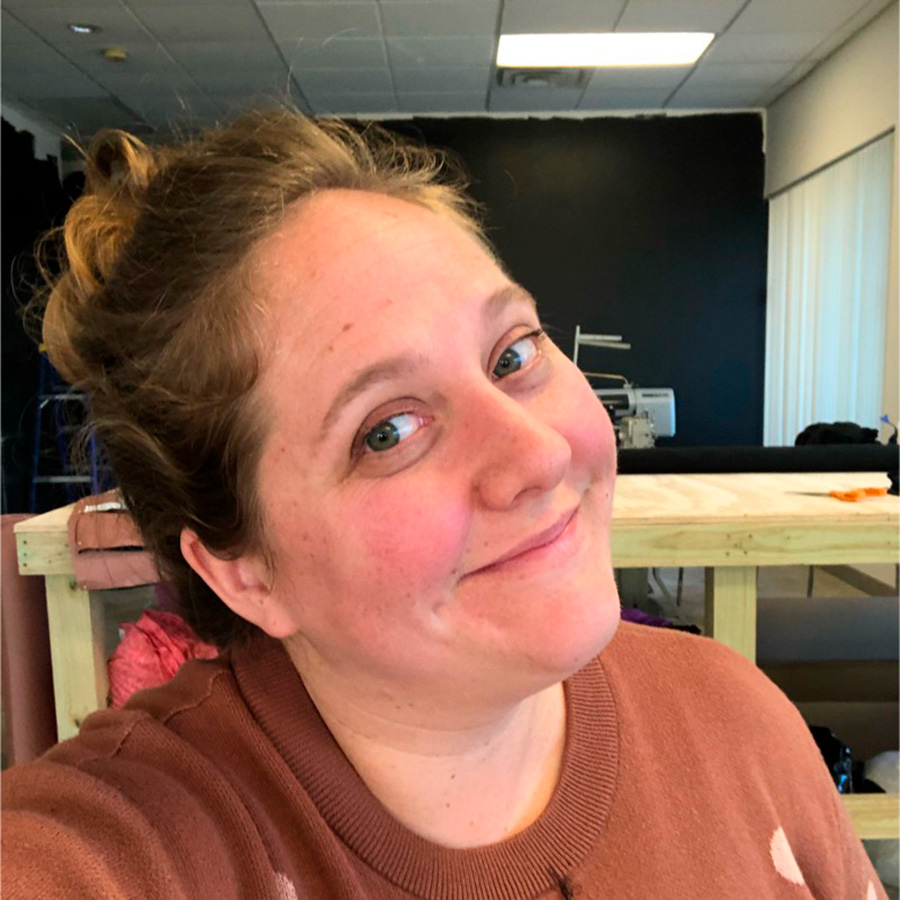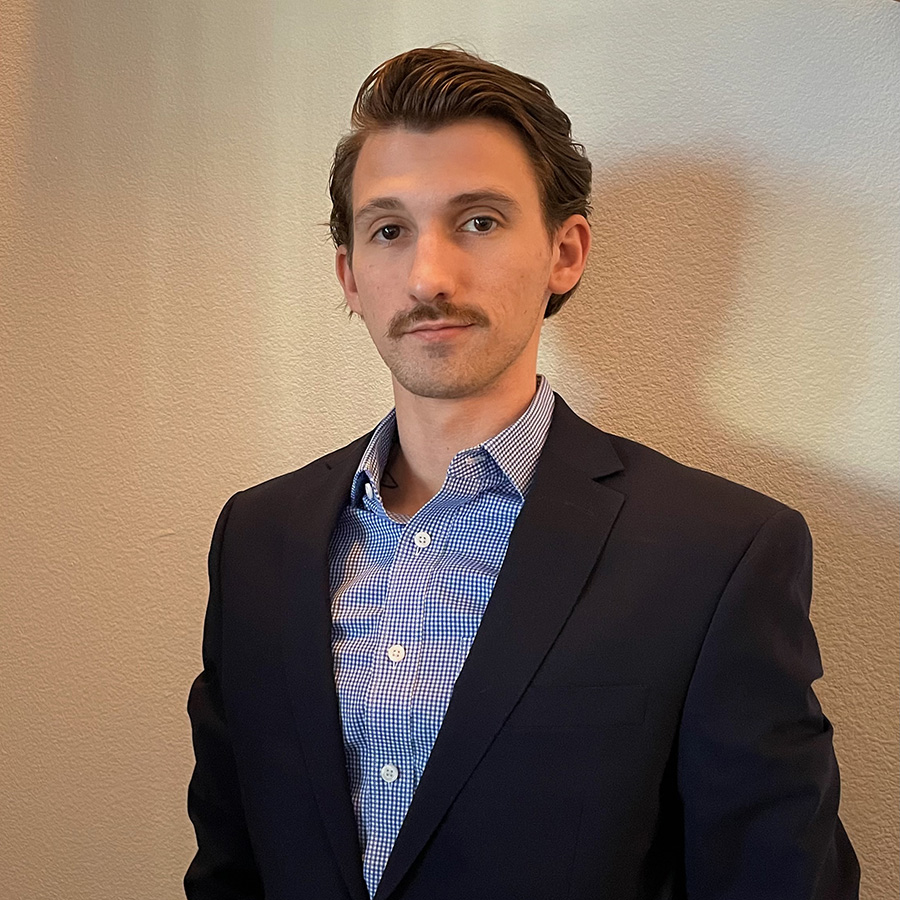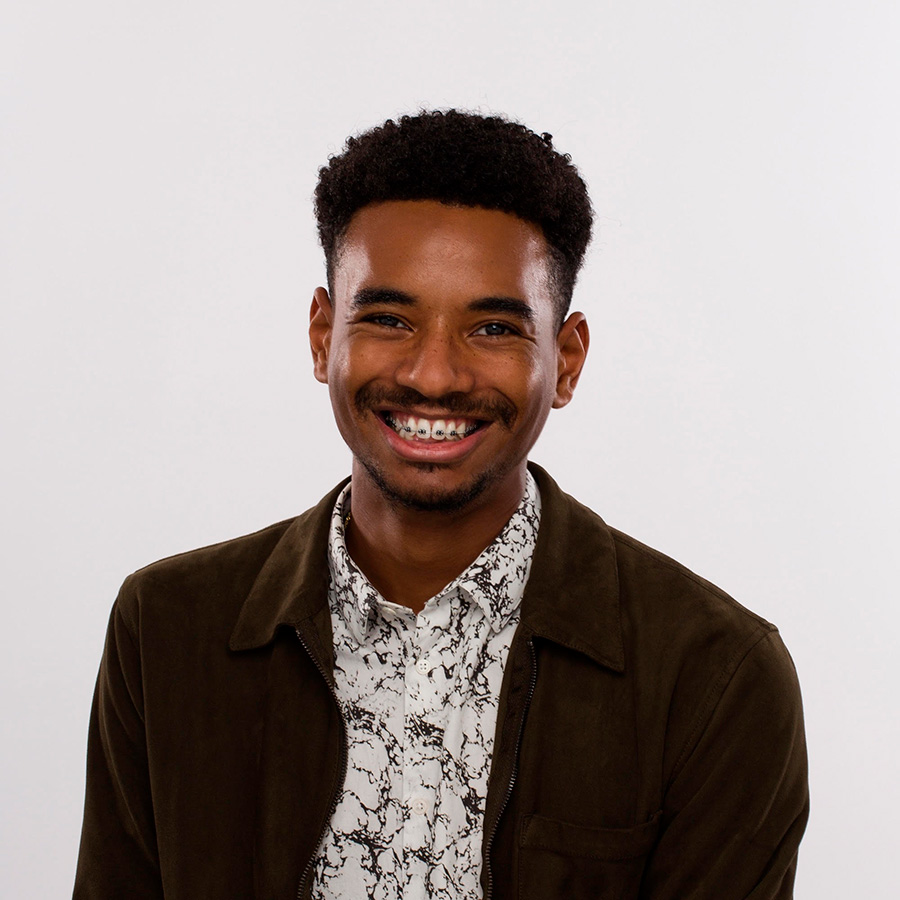Sustainable Changemakers
UNT alumni are making sustainable change in fashion and design.
April 3, 2023
From developing their own sustainable labels to helping larger fashion and jewelry
brands make incremental change, UNT alumni are working to lessen the environmental
impact of the fashion industry. Read below about their work.
Alisa Otto, owner of Ottomatic Threads

Alisa Otto ('12 M.F.A.)
Fashion design alumna Alisa Otto ('12 M.F.A.) launched Ottomatic Threads in 2020 to produce sustainably made women's athletic apparel. Her company takes the slow production approach opting to keep the whole process onsite in an 1,800-square-foot facility in Cross Roads rather than contracting out to a larger manufacturer.
"A lot of people think that clothing is only made in these massive factories because that's what we've seen in the last few decades with the rise of fast fashion, but traditionally clothing has been made in much smaller spaces and that's the method that we take," Otto says. "With a micro factory, we have more control over what happens and can be more intentional about sustainability."
Beyond using recycled fibers and reusing fabric scraps, Otto's brand has a focus on size inclusivity offering options from XS to 6X, which as the company's tagline suggests gives "a voice to underrepresented bodies in the outdoors, one garment at a time."
"A big part of consumer waste is they throw away or return clothes when they don't fit and many of those items end up in a landfill," Otto says. "I want to make sure that when they purchase something from me, it's true to size and is high-quality so it will last a long time."
Through community education workshops at Ottomatic Threads and her work as a senior lecturer of fashion design at UNT, Otto also is dedicated to educating consumers and students about their part in improving sustainability in the fashion industry.
Matthew Blair, C2 sustainable material sourcing and fabric development executive for The Apparel Group

Matthew Blair ('19)
Matthew Blair's ('19) role at The Apparel Group (TAG), whose parent company TAL Apparel is a world leader in vertical garment manufacturing, didn't exist until he stepped into it a year ago.
In just a few years, Blair has worked his way up from being an intern as a senior merchandising major at UNT to an executive focused on sustainable material sourcing and fabric development.
TAL Apparel has been mindful of sustainability and fair labor practices since it was founded 75 years ago, well before the term became a marketing buzzword in the industry. The company has a whole team dedicated to sustainability at its headquarters in Hong Kong, but Blair is the voice of sustainability for the U.S. office in Lewisville.
Blair helps brands such as Patagonia, a top sustainable outdoor apparel brand, develop strategies and practices to reduce their environmental impact. These solutions can range from using raw materials such as regenerative cotton and selecting more biodegradable packaging to helping brands develop operational goals and structure teams of employees to focus on sustainability.
"Everything we get in fashion comes from nature in one way or another -- whether it's cotton coming from the ground or polyester and nylon coming, unfortunately, from fossil fuel inputs -- so finding a way to close the loop and really incorporate sustainability into what I do by being an advocate for our company and the brands we work with on ways to lessen our environmental impact gives me purpose," Blair says.
R'Bonney Gabriel, designer of independent fashion label R'BONNEY NOLA and lead sewing instructor at Magpies and Peacocks

R'Bonney Gabriel ('18)
As the first Filipino American woman to be crowned the title of Miss Universe and Miss Texas USA 2022, R'Bonney Gabriel ('18), put sustainability in the global spotlight.
While preparing for the beauty competitions, she wanted to take her skills as a fashion designer and apply them to construct her own outfits for the pageants. One of her creations for the Miss Universe pageant included a swimsuit cape, which she sustainably dyed and designed using plastic bottles. She also upcycled an old pant suit from a friend giving it new life as her pageant arrival outfit and preventing its languish in a landfill.
"I thought this would be a good way to push for sustainability in the beauty industry," Gabriel says. "I'm not afraid to be experimental and enjoy bringing in a surprise element."
Her independent fashion label R'BONNEY NOLA follows sustainable design methods such as using repurposed/natural fabrics and limiting textile waste in the production process. Through her work as lead sewing instructor at Magpies and Peacocks, a nonprofit design house committed to disrupting the waste in fashion, she's teaching sewing skills and economically empowering domestic violence survivors in Houston as part of the nonprofit's Makr Collective.
"Life is more purposeful when helping others," Gabriel says. "When you're doing something for the greater good, it's a fuel for life. For me, that made life so much more meaningful."
Mikah Oliver, associate buyer for Jean Dousset

Mikah Oliver ('19, '22 M.S.)
Mikah Oliver ('19, '22 M.S.) got into merchandising because he was drawn to make his mark on company purchasing decisions, which thanks to his education at UNT are guided by principles of sustainability.
"There are better, more ethical and sustainable ways of conducting business, it's whether the company wants to do them," Oliver says. "Some companies are just thinking about their bottom line. With all that I've learned, I feel empowered to be that voice of concern to point out wasteful practices and offer ideas for ways we can reduce our carbon footprint."
And Oliver has already made an impact in his career. At his previous role with Signet Jewelers, parent company of Zales, Kay Jewelers and other brands, he pitched an idea to switch from polyplastic to paper bags for customer purchases.
"Not only did it improve the way that customers resonated with the brand because they saw we were making sustainable decisions, but we also saw sales increase during that time," Oliver says.
Now as an associate buyer for Los Angeles-based Jean Dousset, he's part of a growing company that has made headlines for its lab grown diamonds, which are seen as more ethical than naturally mined diamonds. The jewelry brand from the great-great-grandson of Louis Cartier also has made a point to transition its production practices to source recycled metals and produce all its jewelry made-to-order to reduce waste.
"I've only been with Jean Dousset for a short time, but I look forward to growing in my career here and being able to impact our sustainability efforts," Oliver says.